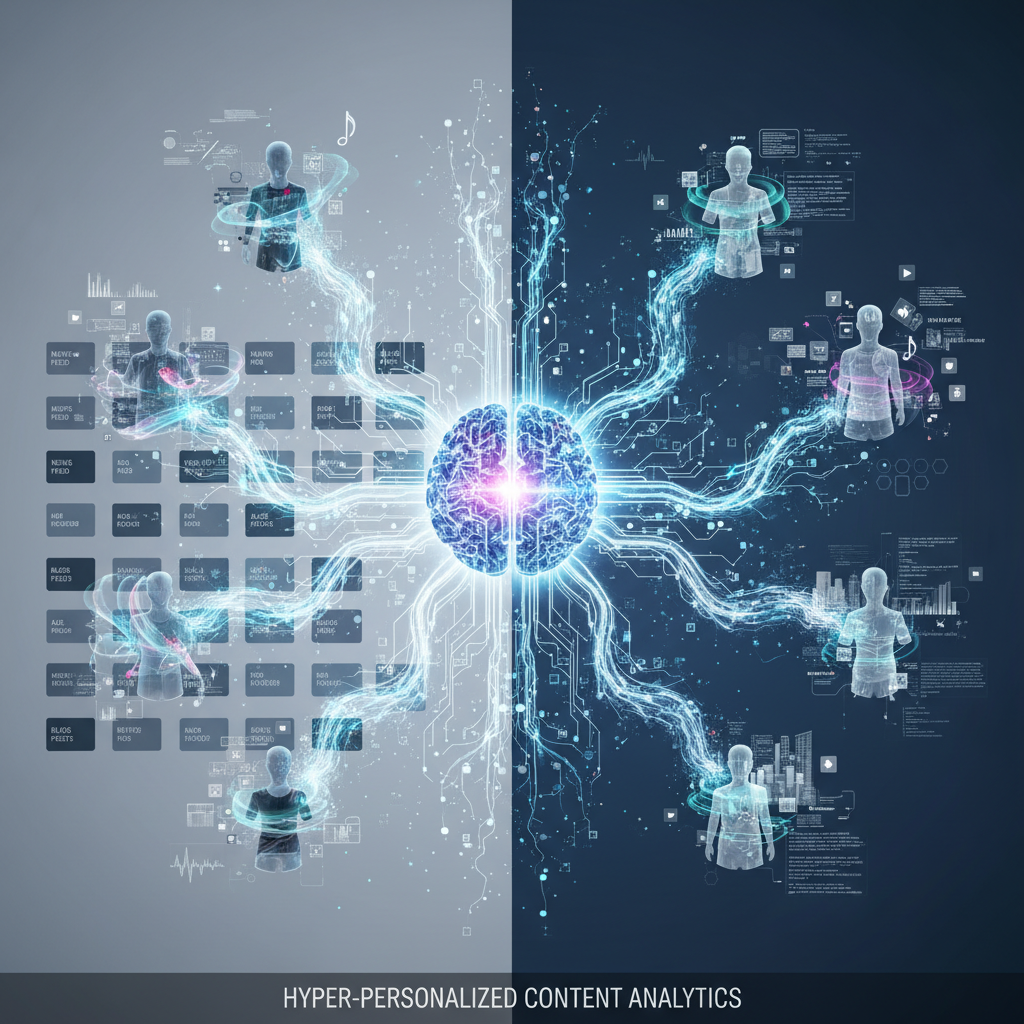
Frameworks, core principles and top case studies for SaaS pricing, learnt and refined over 28+ years of SaaS-monetization experience.
Thank you! Your submission has been received!
Oops! Something went wrong while submitting the form.
Join companies like Zoom, DocuSign, and Twilio using our systematic pricing approach to increase revenue by 12-40% year-over-year.

In today's digital landscape, creating content that resonates with your specific audience isn't just nice to have—it's essential for survival. While traditional content personalization has made strides over the years, a new paradigm is emerging through agentic AI that's redefining what's possible with audience intelligence. This technological evolution is creating hyper-relevant experiences that make previous personalization efforts look primitive by comparison.
Traditional personalization engines have typically relied on relatively simple rules and segments. They might categorize users based on broad demographics, past purchases, or basic behavioral signals. While this represented a significant improvement over one-size-fits-all content, these approaches often:
According to a study by Gartner, despite 80% of marketers investing in personalization tools, only 23% of consumers report experiencing "personalization" that actually feels personal to them. This gap highlights the shortcomings of conventional approaches.
Agentic AI represents a fundamental shift in how machines interact with both content and audiences. Unlike traditional algorithms that follow explicit programming, agentic AI systems demonstrate:
As McKinsey research shows, companies that excel at personalization generate 40% more revenue from those activities than average players. Agentic AI is poised to widen this gap even further.
The true power of agentic AI in content personalization comes from its sophisticated approach to audience intelligence. Here's how it's transforming our understanding of audiences:
Rather than relying on static personas created by marketing teams, agentic AI systems continuously develop and refine audience understandings based on real-time interactions. These systems:
Traditional systems mostly react to what users have already done. Agentic AI excels at:
According to research from the Content Marketing Institute, content that addresses the user's specific stage in the buyer journey performs up to 72% better than generic content. Agentic systems excel at matching content to these journey stages.
Perhaps most impressively, advanced AI systems can now recognize and respond to emotional signals:
With these advanced intelligence capabilities, agentic systems are revolutionizing how content gets optimized:
Unlike traditional A/B testing that examines one or two variables, agentic AI can:
A report by Aberdeen Group found that companies using advanced content optimization see a 10x improvement in conversion rates compared to those using basic approaches.
Rather than serving pre-built content pieces, the most sophisticated personalization engines now:
Agentic AI goes beyond keyword matching to truly understand content meaning:
For organizations looking to leverage these advancements, several approaches are emerging:
The most effective implementations pair human creativity with AI capabilities:
A new generation of platforms combines multiple technologies:
Companies like Persado, Mutiny, and OneSpot are pioneering these integrated approaches, with reported ROI improvements of 300-500% compared to traditional content marketing.
Successfully implementing agentic AI for content personalization typically follows this path:
Looking ahead, several trends will shape how agentic AI continues to evolve content personalization:
Future systems will integrate signals across text, voice, image, and video interactions to build more comprehensive audience profiles.
As AI becomes better at detecting and responding to emotional states, content will adapt not just to interests but to how users feel at the moment of interaction.
Rather than optimizing single touchpoints, agentic AI will coordinate personalized experiences across channels, devices, and platforms.
As capabilities advance, leading organizations will develop robust frameworks ensuring personalization enhances user experience without crossing privacy boundaries.
As agentic AI continues to transform content personalization through sophisticated audience intelligence, the gap between leaders and laggards will widen. Organizations that successfully implement these technologies stand to gain significant advantages:
The most successful companies won't view this as merely a technological shift but as a fundamental evolution in how they understand and serve their audiences. Those who embrace this change will set new standards for what content personalization truly means in the age of agentic AI.

Join companies like Zoom, DocuSign, and Twilio using our systematic pricing approach to increase revenue by 12-40% year-over-year.